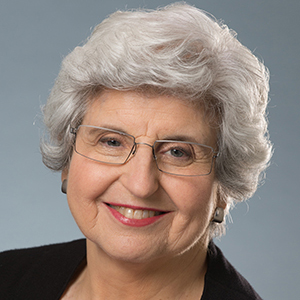There have been so many moments that seemed like meaningful victories. None more so than in 1977, when this organization — then called the Women’s Legal Defense Fund — successfully litigated Barnes v. Costle in federal court in Washington, D.C. That case established, for the first time, that sexual harassment is illegal job discrimination. That was 40 years ago.
There was the victory 31 years ago in Meritor Savings Bank v. Vinson when the U.S. Supreme Court recognized sexual harassment as sex discrimination and therefore a violation of the Civil Rights Act.
The hearing 26 years ago when Anita Hill testified to an all-male Senate Judiciary Committee about the sexual harassment she had endured from then-Supreme Court nominee Clarence Thomas. Savaged by Committee members, Hill’s resolve was unshakeable, her dignity magnificent. She told the truth and held her ground.
Since then, we’ve seen a parade of hefty awards, huge settlements, high-profile firings and national teach-ins.
At times, it looked like progress — but none of it protected Oprah or Alyssa, Andrea or Beverly, Gretchen or Megyn, Ashley or Rose, Gwyneth or Angelina, Mira or Reese, Terry or Lupita. None of it protected the women of Tailhook, Mitsubishi Motors, Novartis, Fox News, Uber, Binary Capital or Amazon Studios — the United States Senate — or the 40 percent of fast food workers who have experienced sexual harassment on the job. None of it stopped Bill O’Reilly, Roger Ailes, Bill Cosby or Harvey Weinstein.
Today, as a crush of #MeToos dominate social media, men who sexually harass and abuse women serve on the Supreme Court and remain titans of industries of all kinds.
Every #MeToo is an indictment — an excruciating reminder of our failure to create workplaces and a society that allow women to be safe. We named it, shamed it and made it illegal — but we haven’t come close to stopping the sexual harassment, abuse and rape that make our country so much less productive, less successful and less secure.
If we want to make sexual harassment a rarity, changing the law is important, but not sufficient. Yes, we definitely need to end forced arbitration, which allows employers to sweep sexual harassment under the rug. And we also have to change the culture.
That starts with men — fathers and brothers — talking to other men.
It starts with creating environments in which harassment is never tolerated and victims come forward because they know that, when they do, they will be heard, believed and protected. It starts with holding accountable every employer that uses payouts to sweep sexual harassment under the rug and then allows it to continue.
And for us, at this moment in time, it starts with beating back the deplorable action by President Trump’s Education Department to reverse a guidance that was helping schools and universities more effectively stop sexual harassment and violence. If we don’t block or change these behaviors and hold perpetrators accountable early, they will claim victims for decades to come.
I am 77 years old. I have been fighting for women’s rights for more than 50 years. I know better than most that no victories come easy, and all victories must be vigorously and continuously defended. But stopping sexual harassment and violence against women and girls is the unfinished business of our time. So let’s honor the courage and conviction of all the women who are stepping forward right now to share their experiences by taking action to make our workplaces and our society safe. Only if we do that will we protect my granddaughters and yours from another generation of predators like Harvey Weinstein.
Lichtman is senior advisor — and former president — of the National Partnership for Women & Families.


